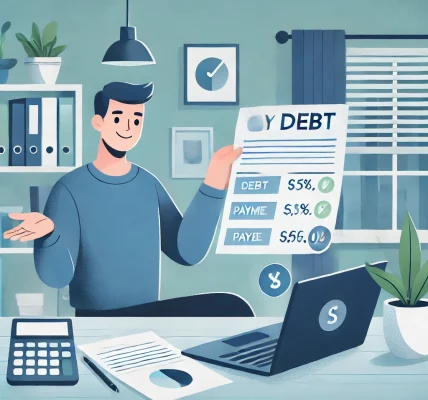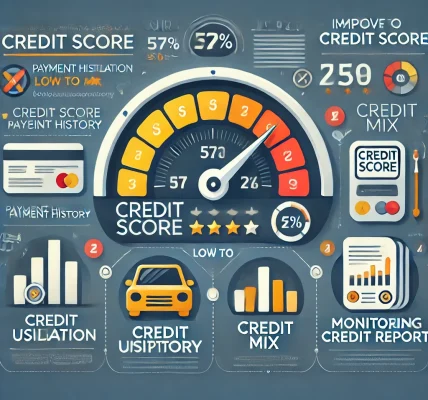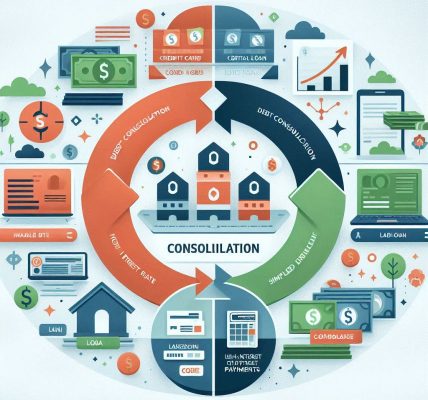Introduction
Student loans can be a valuable tool in financing education, but they also have long-term implications on your credit score and future borrowing ability. Understanding how student loans impact your financial health can help you make informed decisions about repayment and credit management.
In this guide, we’ll explore how student loans influence your credit score, the factors that affect loan repayment, and strategies to maintain a strong financial standing.
1. How Student Loans Affect Your Credit Score
a) Positive Effects on Credit Score
When managed responsibly, student loans can actually boost your credit score:
- Establishes Credit History: Student loans are often one of the first major debts young adults take on, helping to build their credit profile.
- Improves Credit Mix: A diverse mix of credit types (loans, credit cards, mortgages) can positively impact your score.
- On-Time Payments: Making consistent, on-time payments builds a strong payment history, which is the most significant factor in credit scoring.
b) Negative Effects on Credit Score
If not managed properly, student loans can harm your credit:
- Missed or Late Payments: Late payments stay on your credit report for up to seven years, negatively affecting your score.
- High Debt-to-Income Ratio: A high balance compared to income can make it harder to qualify for additional credit.
- Default and Collections: If loans go into default, it can severely damage your credit and lead to legal action or wage garnishment.
2. Factors That Influence Credit Score with Student Loans
Understanding the key factors in your credit score can help you make better financial decisions:
a) Payment History (35%)
- Making payments on time is the most critical factor.
- Even one missed payment can lower your score significantly.
b) Amounts Owed (30%)
- Having a large loan balance doesn’t necessarily hurt your credit, but maxing out your available credit can.
- Keeping balances manageable improves your credit standing.
c) Length of Credit History (15%)
- The longer you’ve had credit, the better your score.
- Since student loans often last years, they help extend your credit history.
d) Credit Mix (10%)
- A mix of installment loans (like student loans) and revolving credit (like credit cards) is beneficial.
e) New Credit (10%)
- Applying for too many loans or refinancing multiple times can lower your score due to hard inquiries.
3. Managing Student Loans to Maintain a Strong Credit Score
a) Make Timely Payments
- Set up automatic payments to avoid missed deadlines.
- If struggling, request a deferment, forbearance, or an income-driven repayment plan.
b) Keep Debt-to-Income Ratio Low
- Avoid taking on unnecessary debt.
- Consider part-time work or scholarships to reduce borrowing needs.
c) Refinance or Consolidate Wisely
- Refinancing can lower interest rates but may remove federal protections.
- Consolidating multiple loans simplifies payments and may extend repayment periods.
d) Monitor Your Credit Report
- Check your credit report regularly for errors or fraudulent activity.
- Dispute any incorrect information to protect your credit score.
4. How Student Loans Impact Future Borrowing
a) Getting a Mortgage or Car Loan
- Lenders consider your student loan payments when evaluating your ability to afford additional debt.
- A high monthly student loan payment can impact your debt-to-income (DTI) ratio, making it harder to qualify for a mortgage.
b) Credit Card Approvals
- Lenders may offer lower credit limits if they see high student loan balances.
- Keeping a low credit utilization ratio (below 30%) helps maintain a healthy credit score.
c) Business and Personal Loans
- A strong credit score helps secure better interest rates on personal or business loans.
- Managing student loans well demonstrates financial responsibility to lenders.
5. Strategies for Paying Off Student Loans Faster
- Make extra payments: Apply extra money toward your principal balance to reduce interest costs.
- Use windfalls wisely: Tax refunds, bonuses, or gifts can help pay off loans faster.
- Choose the right repayment plan: Consider standard, graduated, or income-driven repayment plans.
Conclusion
Student loans play a significant role in shaping your financial future. By understanding their impact on your credit score and borrowing ability, you can make informed decisions to maintain good credit and avoid financial hardship.




